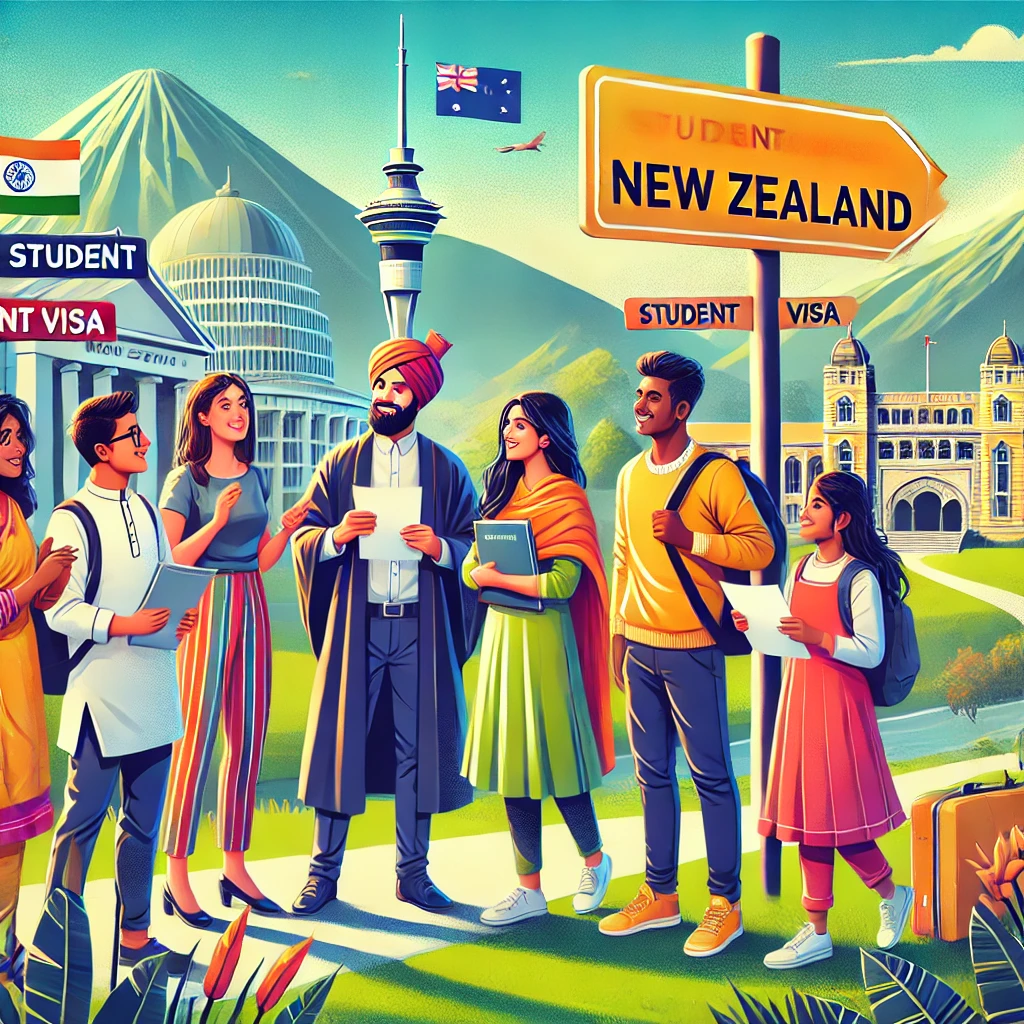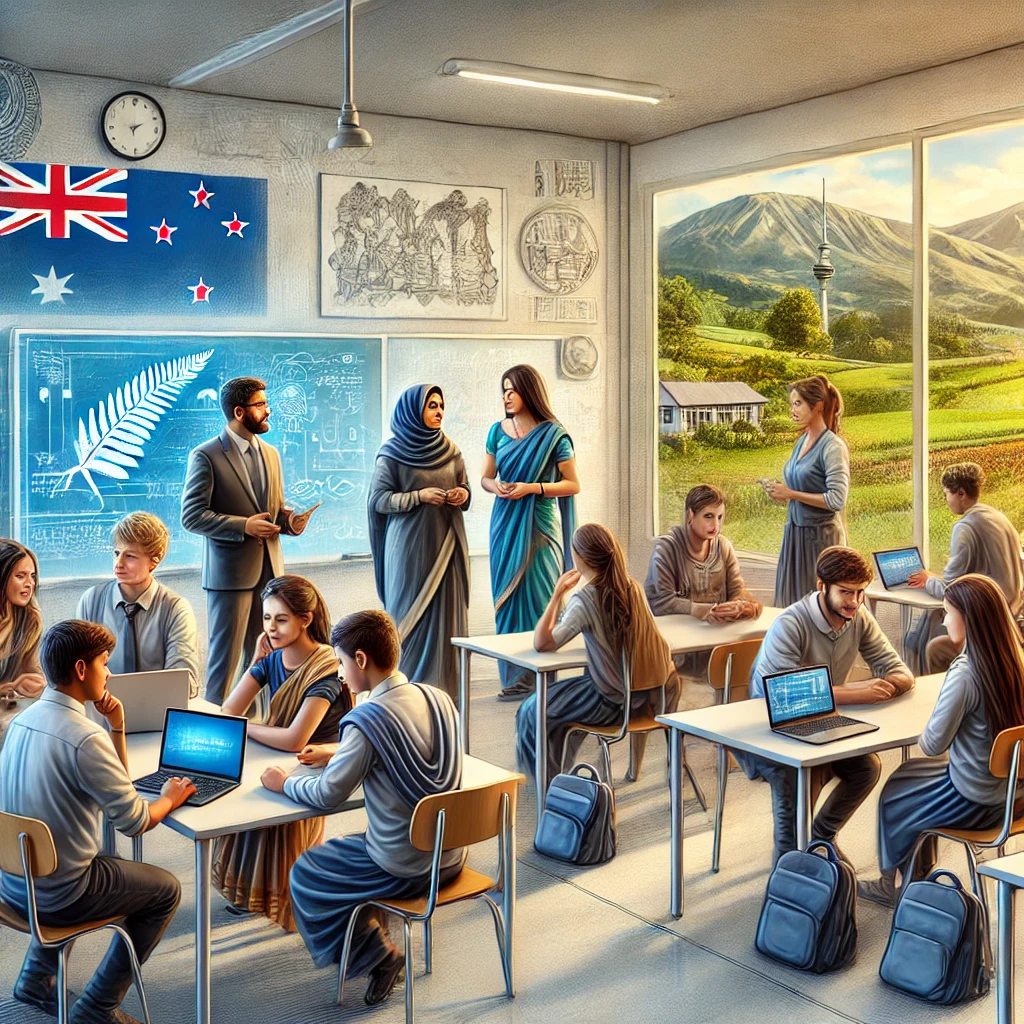New Zealand has announced transformative changes to its immigration policies, creating expanded pathways for international students while tightening overall visa rules. These developments aim to attract high-caliber students while ensuring streamlined transitions from education to employment. Indian students, a significant demographic in New Zealand’s international education ecosystem, stand to benefit from these changes. Here’s an in-depth exploration of how these policies impact Indian aspirants.

Overview of the Changes
- Postgraduate Study and Work Visa Pathways:
- Students completing a Postgraduate Diploma (PGDip) of at least 30 weeks can now transition seamlessly to a Master’s Degree, qualifying them for a Post-Study Work Visa (PSW).
- This two-step educational approach encourages students to gain advanced knowledge and better adapt to New Zealand’s job market.
- Reduced Dependents for Low-Tier Programs:
- Visa rules for dependents accompanying international students have become stricter for non-degree or low-tier courses, prioritizing high-value educational streams.
- Streamlined Work-Study Pathways:
- The government emphasizes courses that align with the nation’s skill shortages, especially in healthcare, IT, engineering, and teaching.
- Duration of Stay:
- Eligible international students pursuing high-value programs can extend their stay, granting them more time to find employment in their field.
- Stronger Language and Financial Requirements:
- Updated language proficiency and proof of funds criteria ensure that students are well-prepared for academic success and self-sufficiency.
Benefits for Indian Students

1. Enhanced Educational Opportunities
- Indian students pursuing high-demand programs such as STEM fields, business, and healthcare now have better pathways for academic progression.
- Flexible transitions from postgraduate diplomas to master’s programs make New Zealand an attractive destination for career-focused learners.
2. Improved Career Prospects
- Post-Study Work Visas (PSW) allow Indian students to gain valuable work experience, which is critical for permanent residency applications.
- Employers in New Zealand value postgraduate qualifications, particularly in sectors facing talent shortages.
3. Affordability and Value
- The ability to complete a PGDip before progressing to a master’s degree reduces the upfront financial burden while maximizing career outcomes.
4. Simplified Visa Processes for High-Value Courses
- Visa policies now reward students enrolled in programs aligned with New Zealand’s skill shortages. This increases chances of approval for aspirants targeting such courses.
Challenges Amid Opportunities
- Stricter Dependent Visa Rules
- While beneficial for high-value programs, students in vocational or non-degree streams face limitations on bringing family members.
- Families accompanying students must meet stricter financial requirements.
- Language and Financial Criteria
- Enhanced English language proficiency standards may pose challenges for some aspirants.
- Higher financial thresholds could deter students from modest-income backgrounds.
Tips for Indian Students Planning to Study in New Zealand

- Choose High-Demand Fields:
- Focus on sectors such as IT, engineering, healthcare, and business administration, which align with New Zealand’s long-term skill requirements.
- Leverage the PGDip-Master’s Pathway:
- Consider enrolling in postgraduate diploma programs as a stepping stone to master’s degrees. This approach balances affordability and career opportunities.
- Prepare for Stringent Criteria:
- Ensure compliance with language proficiency (IELTS/TOEFL) and financial requirements before applying.
- Seek Guidance on Work Visas:
- Stay updated on changes to post-study work visa rules and how they apply to specific programs.
- Utilize Government Resources:
- Refer to official portals like Education New Zealand (ENZ) for the latest updates, scholarship opportunities, and authorized immigration consultants.
Economic and Social Impact
1. For New Zealand:
- These changes attract academically strong and career-oriented students.
- They support the economy by addressing workforce shortages and boosting the higher education sector.
2. For Indian Students:
- The policies enhance opportunities for global exposure and economic mobility.
- Stronger post-study work rights align with long-term career and settlement goals.
- This evolving landscape emphasizes the importance of strategic planning and informed decision-making for Indian students aspiring to study in New Zealand. By understanding these changes and adapting to them, students can unlock unprecedented opportunities for academic and career growth.
For further details, consult official sources like Immigration New Zealand or connect with certified education consultants.